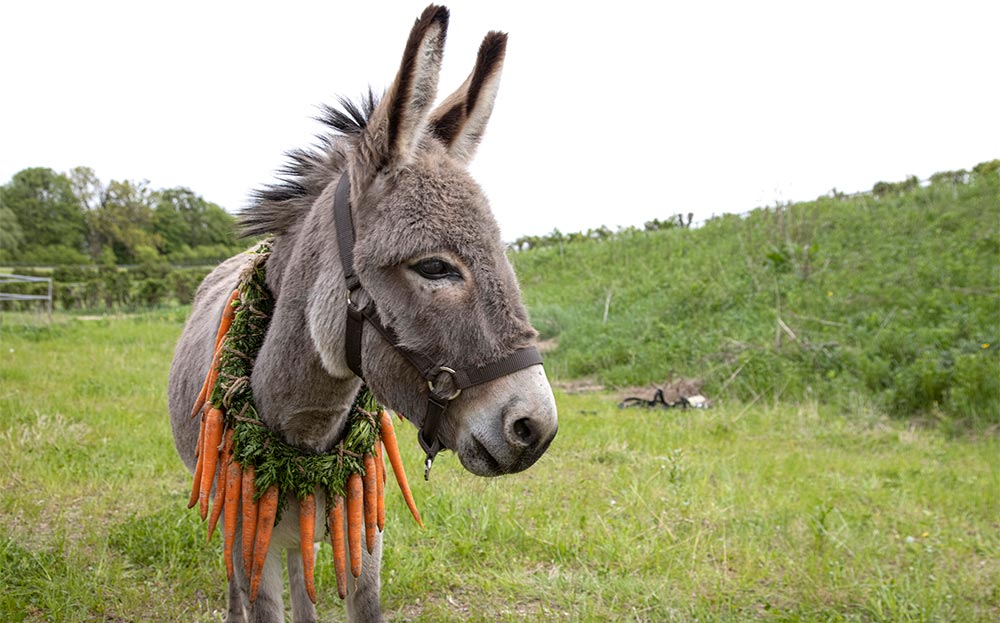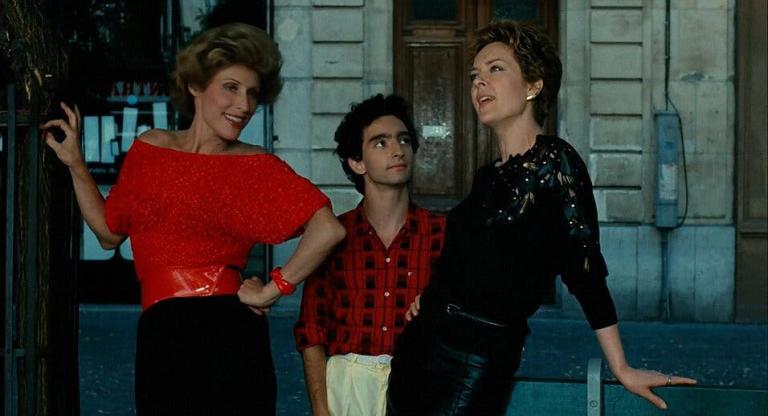“In a donkey’s life, we see the same stages as in a man’s: A childhood of tender caresses, adult years spent in work. A little later, the time of talent and genius, and finally, the stage of mysticism that precedes death.” So said Robert Bresson when interviewed about his oblique donkey drama Au Hasard Balthazar (1966). The film conceives a baptized donkey being ferried between owners—some cruel and conniving, others doting, like his beloved Marie—before being shot dead by a customs guard in a tragic, Christly display.
Polish auteur Jerzy Skolimowski’s EO (2022) is an affectionate homage to Balthazar, similarly observing the rough-and-tumble of donkey living as the titular animal clops in and out of people’s lives: a circus troupe, a football team, thugs, meatpackers, and a stepcest dyad featuring Isabelle Huppert. It’s a six-headed affair with half a dozen donkeys acting in the starring role, their droopy eyes and sloping grins commixing into a single leading man. EO is initially part of the Polish circus and has his very own Marie named Kasandra (Sandra Drzymalska), a tender young dancer who feeds him carrot cupcakes and caresses his belly in a faintly sensual way. But in a stunning display of cosmic irony, animal rights activists protest the alleged “torture” and “enslavement” of live animals in the circus, and EO is shuttled off into far harsher realities.
The film features red-lit stroboscopic asides (presumably EO’s elliptic daydreams) of wind turbines and a clumsy dog-bot dying on its back, marked by a techno score and whirling camera operatics. Skolimowski has always had an affinity for the experimental, but suffusing a source text defined by its stolid exposition with feverish, latter-day concepts (at one point, we see EO at a pub party, beer poured over his muzzle and smoke blown into his face) is as clever as it is blasphemous. There’s no real cohesion to these images, compelling the viewer to inscribe human thought onto animal form—such is the spinal column of EO, as with any work which places a nonhuman creature at the fore and makes them dance.
The film’s final lash trades Balthazar’s tragic reverence for a wider indictment of factory farming and the meat industry. Even more crucially, we don’t watch EO die. Bresson’s end-of-rope mysticism isn’t particularly active here, perhaps to its detriment, but Skolimowski and his wandering donkey both assume and elude our every presupposition.
EO screens tonight, October 11, and on October 13, at the New York Film Festival, the film’s US premiere.



